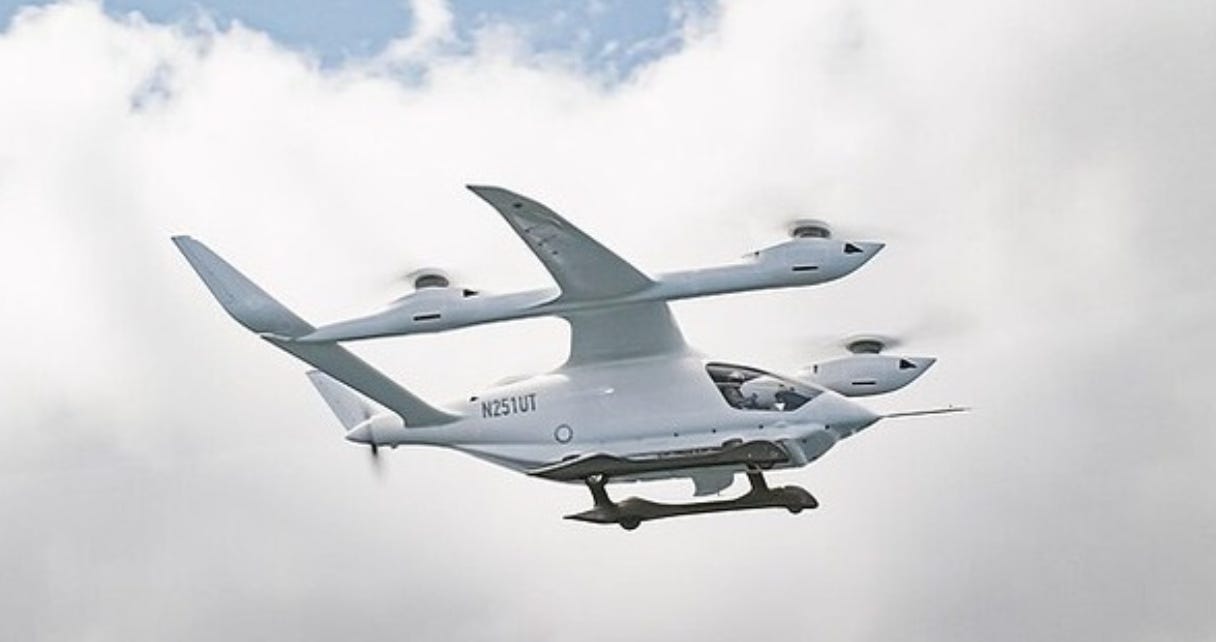Vermont's Beta Flew Passengers to JFK for $7.00; Same Flight on Private Jet? $4,000
The Beta Alia CX300, a sleek, battery-powered aircraft, completed the 80-mile journey with zero emissions, offering a quieter and cleaner alternative to traditional aviation.
In a groundbreaking milestone for sustainable aviation, Beta Technologies has flown passengers from East Hampton to John F. Kennedy International Airport (JFK) for a mere $7 in energy costs, landing the first all-electric aircraft in the New York-New Jersey region on June 3, 2025. This 45-minute flight, which carried a pilot and four passengers, starkly contrasts with the $4,000 price tag of a comparable private jet journey, highlighting the transformative potential of electric aviation to slash costs and emissions.
The Beta Alia CX300, a sleek, battery-powered aircraft, completed the 80-mile journey with zero emissions, offering a quieter and cleaner alternative to traditional aviation. “This flight demonstrates how electric aircraft can ease urban congestion, reduce costs, and make air travel more accessible,” said Kyle Clark, CEO of Beta Technologies. Meanwhile, private jet charters on the same route, using turboprops or light jets, cost between $2,500 and $4,000, with flight times ranging from 30 to 40 minutes—only slightly faster than Beta’s electric aircraft.
For frequent travelers between the Hamptons and New York City, the cost disparity is striking. A private jet, while offering luxury and flexibility, comes with a premium that includes fuel, crew, and airport fees. In contrast, Beta’s $7 energy cost reflects the efficiency of electric propulsion, potentially revolutionizing short-haul regional travel. “We’re not just flying planes; we’re building a sustainable future for aviation,” Clark added.
The flight marks a pivotal moment as Beta Technologies, a Vermont-based company founded in 2017, pushes toward certification of the Alia CX300 in 2025, with passenger services expected by 2026. With over $1 billion in funding, including a $318 million round in October 2024, Beta is poised to disrupt the aviation industry. As electric aircraft gain traction, travelers may soon have an affordable, eco-friendly alternative to high-cost private jets, redefining how we connect cities.
Want to Geek Out on the Details? Here They Are
Flight Details
On June 3, 2025, Beta Technologies achieved a historic first by landing an all-electric aircraft, the Beta Alia CX300, at JFK after a 45-minute flight from East Hampton Airport. The flight carried a pilot and four passengers, covering approximately 80 miles with an energy cost of just $7, as reported by EVtol.news. This marked the first all-electric aircraft landing in the New York-New Jersey region, as confirmed by Reuters and the Port Authority of New York and New Jersey.
Aircraft Specifications
The Beta Alia CX300 is a conventional takeoff and landing (CTOL) electric aircraft with a range of 386 nautical miles (714 km) and capacity for up to five passengers or 1,250 lbs of cargo, according to FlightGlobal. It uses five batteries to power a single motor, offering significant cost savings over traditional aircraft. A comparable turbine-powered flight costs around $700, as noted in EVtol.news, underscoring the economic advantage of electric aviation.
Private Jet Comparison
Private jet charters from East Hampton to JFK cost between $2,500 and $4,000, depending on the aircraft type. A turboprop flight costs around $2,500, while a light jet starts at approximately $4,000, based on estimates from evoJets and Paramount Business Jets. These flights take 30 to 40 minutes, slightly faster than the Beta flight’s 45 minutes, but the cost difference—$7 versus up to $4,000—highlights the economic disparity. Private jet costs include fuel, crew, maintenance, and airport fees, which inflate prices compared to Beta’s energy-efficient model.
Company Background
Beta Technologies, founded in 2017 in Vermont, has raised over $1 billion, including a $318 million Series C round in October 2024 led by the Qatar Investment Authority, as reported by Reuters. The company operates a 200,000 sq ft production facility in Burlington, Vermont, where it manufactures the Alia CX300 and other models, per FlightGlobal. Beta is targeting FAA certification for the CX300 in 2025, with passenger services planned for 2026, according to AIN Online.
Technological Innovations
Beta is advancing battery technology at its Advanced Battery Research Center in St. Albans, Vermont, developing high-voltage battery packs and testing four cell types, with a projected 40% improvement in battery performance by the decade’s end, as noted in EVtol.news. The company is also exploring next-generation chemistries like lithium-air and solid-state batteries, enhancing the efficiency and safety of its aircraft. A 2022 FAA drop test with the National Institute for Aviation Research validated the robustness of Beta’s battery systems.
Global Reach and Partnerships
Beta’s global presence includes demonstration flights in Norway and Ireland in 2025, with a second CX300 rolled out for Norway, as reported by Beta Technologies and Aerospace Testing International. The company has secured orders from Air New Zealand, United Therapeutics, Bristow Group, and Metro Aviation, with up to 20 aircraft ordered by Metro, per FlightGlobal.
Sustainability Impact
The JFK flight aligns with Beta’s mission to reduce emissions and urban congestion, as stated by CEO Kyle Clark in Reuters. With over a third of global flights under 500 miles, electric aircraft like the CX300 are well-suited for short-haul routes, offering a sustainable alternative to fossil fuel-powered jets, as highlighted in EVtol.news.



Why do you compare just the energy cost for Beta to the entire cost of the other flights? You either have to compare energy cost to energy cost, or flight cost to flight cost. The whole point of your article is ruined by this basic comparision flaw. And I like Beta!
Building that aircraft and battery is not "Eco-friendly".... Just saying....